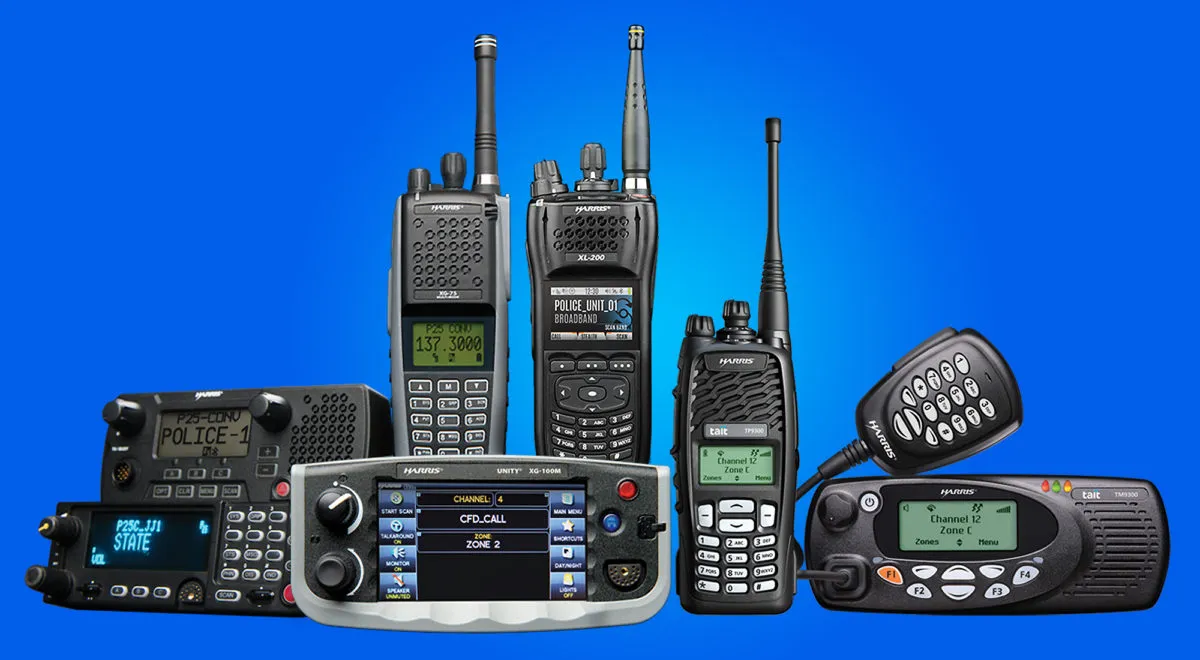School Campus Two-Way Radio Solutions: Elevating Safety and Communication

Strong 8k brings an ultra-HD IPTV experience to your living room and your pocket.
In today’s world, school campus two-way radio solutions are no longer a luxury — they are a necessity. Whether it’s for improving day-to-day operations, enhancing emergency preparedness, or facilitating seamless collaboration among staff members, two-way radios play a vital role in keeping campuses safe and connected.
From elementary schools to sprawling university campuses, administrators are turning to custom-designed radio systems that ensure reliable communication at all times. Let’s explore why schools are investing in these solutions and how they can optimize their use for maximum impact.
The Growing Need for Reliable School Communication
It’s no secret that school environments face unique communication challenges:
- Large campuses: Many schools cover vast areas, making it difficult for staff to stay connected through personal devices or PA systems alone.
- Security concerns: In the event of an active threat, natural disaster, or medical emergency, fast and clear communication is critical.
- Daily coordination: Maintenance staff, security personnel, bus drivers, and administrators must work together to manage everything from arrival/dismissal to after-school events.
- Traditional methods like landline phones and mobile apps have limitations. Phones can’t always reach underground areas or outdoor spaces, and apps often rely on Wi-Fi or cellular networks that may be unreliable during high-traffic times or emergencies.
That’s where school campus two-way radio solutions shine. With push-to-talk functionality, rugged devices, and dedicated channels, they ensure instant and clear communication—no dial tones, no delays.
Key Features of Modern School Two-Way Radios
Today’s radios go far beyond walkie-talkies of the past. Here are some essential features for school environments:
1. Instant Push-to-Talk (PTT)
Time is of the essence in emergencies. PTT allows staff to instantly communicate without fumbling through contact lists or apps.
2. Coverage Across Campus
With repeaters and optimized antennas, schools can achieve reliable coverage across:
- Classrooms
- Hallways
- Gymnasiums
- Playgrounds
- Parking lots
- Stadiums and fields
3. Durability
Modern two-way radios are built to withstand drops, dust, moisture, and wear—perfect for school environments where devices are used indoors and outdoors.
4. Audio Clarity
Advanced noise-canceling microphones and loud speakers ensure clear audio even in noisy cafeterias or during outdoor events.
5. Battery Life
Radios provide all-day operation, so staff can rely on them throughout long school days and after-school activities.
6. Emergency Features
Many radios include panic buttons and man-down alerts that can notify security teams instantly during emergencies.
Customizing Two-Way Radio Solutions for Schools
Every school is different. That’s why it’s important to design a radio system that meets the specific needs of your campus.
1. Coverage Mapping
Work with a professional integrator to conduct a coverage survey. Identify any dead zones and install repeaters where necessary to ensure 100% campus-wide coverage.
2. User Groups
Segment users into logical talk groups:
- Administration
- Security
- Custodians
- Transportation
- Coaches/PE staff
- Event staff
This prevents channel congestion and allows staff to communicate effectively.
3. Integration with Emergency Systems
Integrate your radio system with:
- Fire alarms
- Lockdown alerts
- Mass notification systems
This allows for rapid, coordinated responses during emergencies.
Benefits Beyond Safety
While enhancing emergency response is a top priority, school campus two-way radio solutions offer many additional benefits:
1. Improved Operational Efficiency
Coordinate bus arrivals and departures
Manage maintenance requests in real time
Communicate during school events and assemblies
2. Enhanced Event Management
From sports games to graduations, radios enable seamless coordination among staff, volunteers, and security teams.
3. Cost Savings
Unlike cellular devices, radios operate on school-owned frequencies with no recurring costs. They’re also more durable, reducing replacement expenses.
4. Greater Peace of Mind
When staff can communicate instantly and reliably, everyone—teachers, parents, and students—feels safer and more confident.
Choosing the Right Radios for Your Campus
Here are some factors to consider when selecting school campus two-way radio solutions:
Radio type: Digital radios (DMR or P25) offer superior audio quality and data features compared to analog models.
Form factor: Select lightweight portables for teachers/admin, rugged units for security/maintenance.
Battery life: Opt for high-capacity batteries to ensure all-day operation.
Accessories: Consider earpieces for discreet communication and chargers for easy management.
Why Work with an Experienced Integrator
Designing an effective radio system is about more than buying equipment. A professional integrator can:
- Conduct on-site coverage testing
- Recommend appropriate equipment and accessories
- Design frequency plans and talk group structures
- Provide installation and training services
- Offer ongoing support and maintenance
This ensures your solution is not only effective but also future-proof as your campus grows.
Conclusion
In an increasingly complex world, school campus two-way radio solutions offer a simple yet powerful tool to enhance both safety and efficiency. Whether coordinating daily activities or responding to emergencies, two-way radios empower staff to stay connected and take swift, coordinated action.
If you’re exploring radio solutions for your school or university, now is the perfect time to act. With modern advancements and tailored system designs, it’s easier than ever to implement a solution that meets your campus’s unique needs and keeps your entire community safer and more connected.
FAQs
1. Are school two-way radios compatible with smartphones?
Yes. Some systems allow integration with apps, enabling hybrid communication across radios and smartphones.
2. Will radios work in underground areas like basements?
Properly designed systems with repeaters and antennas can provide full coverage, even in challenging environments.
3. Can we limit which staff members can communicate with certain groups?
Absolutely. Radios can be programmed with talk groups to control who can communicate with whom.
4. Are school two-way radios secure from outside interference?
Digital radios use encryption to ensure that only authorized users can access the system.
5. What is the typical lifespan of school radios?
With proper care, high-quality radios can last 5-7 years or longer, providing excellent long-term value.
Note: IndiBlogHub features both user-submitted and editorial content. We do not verify third-party contributions. Read our Disclaimer and Privacy Policyfor details.







